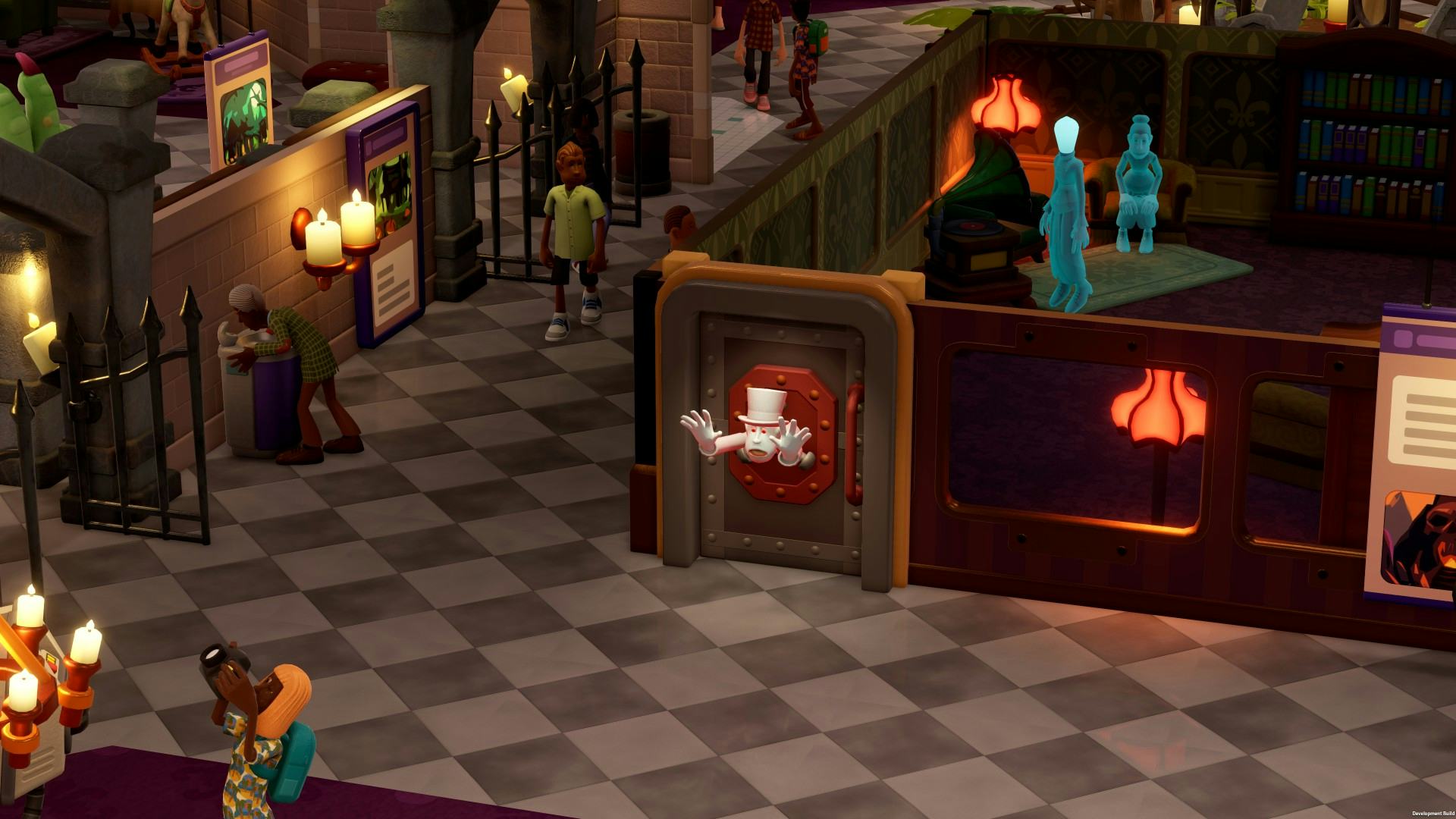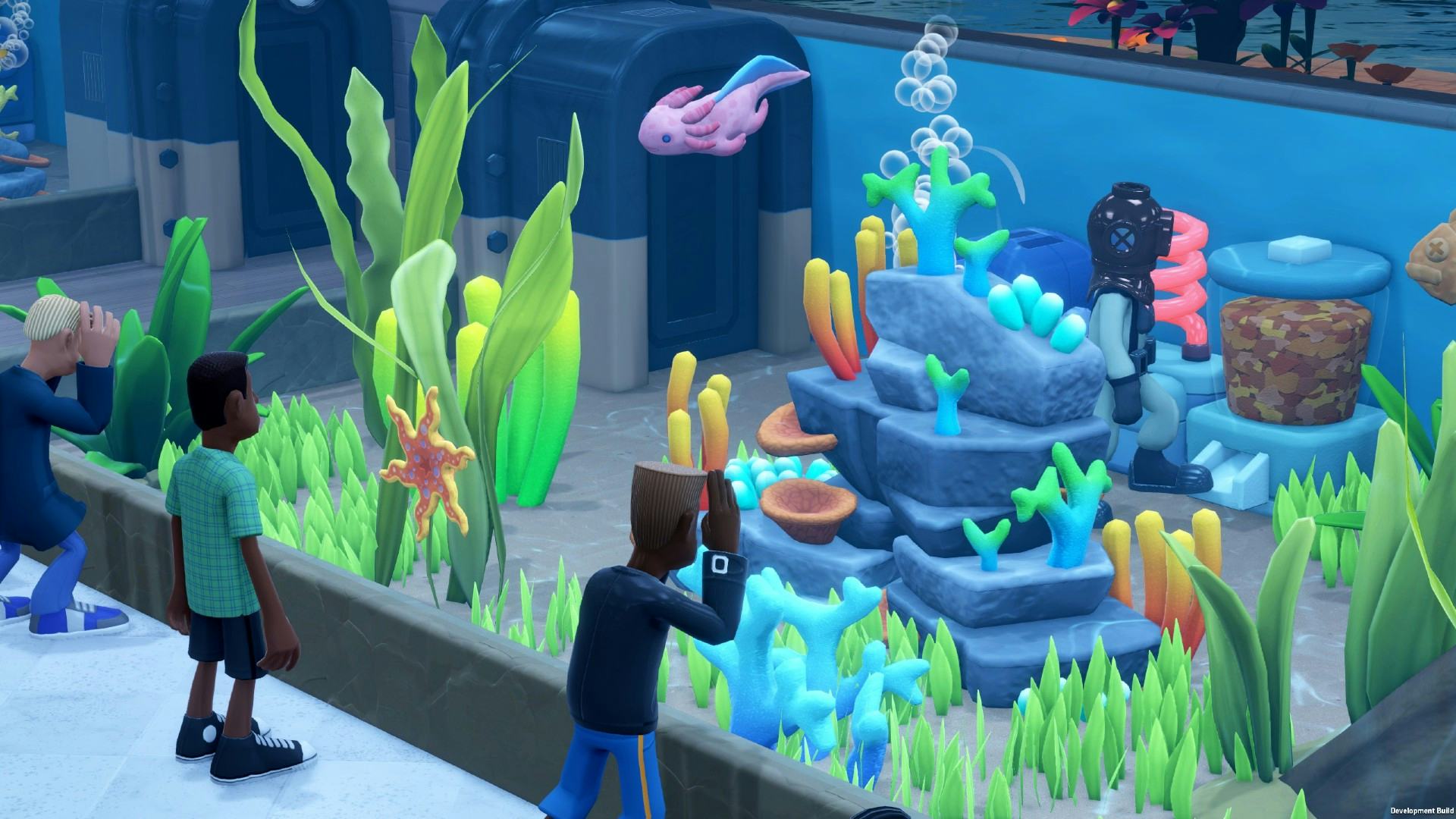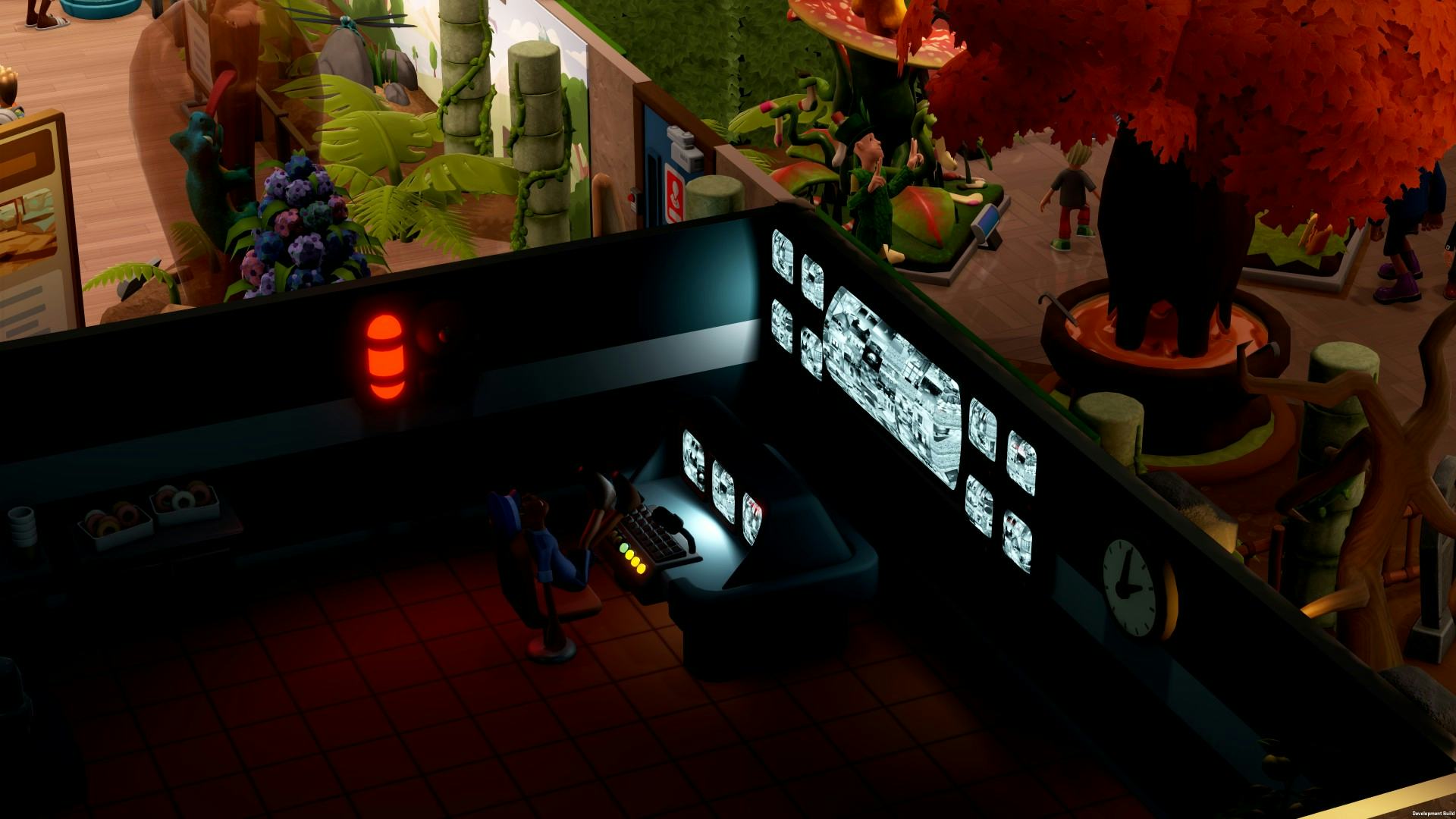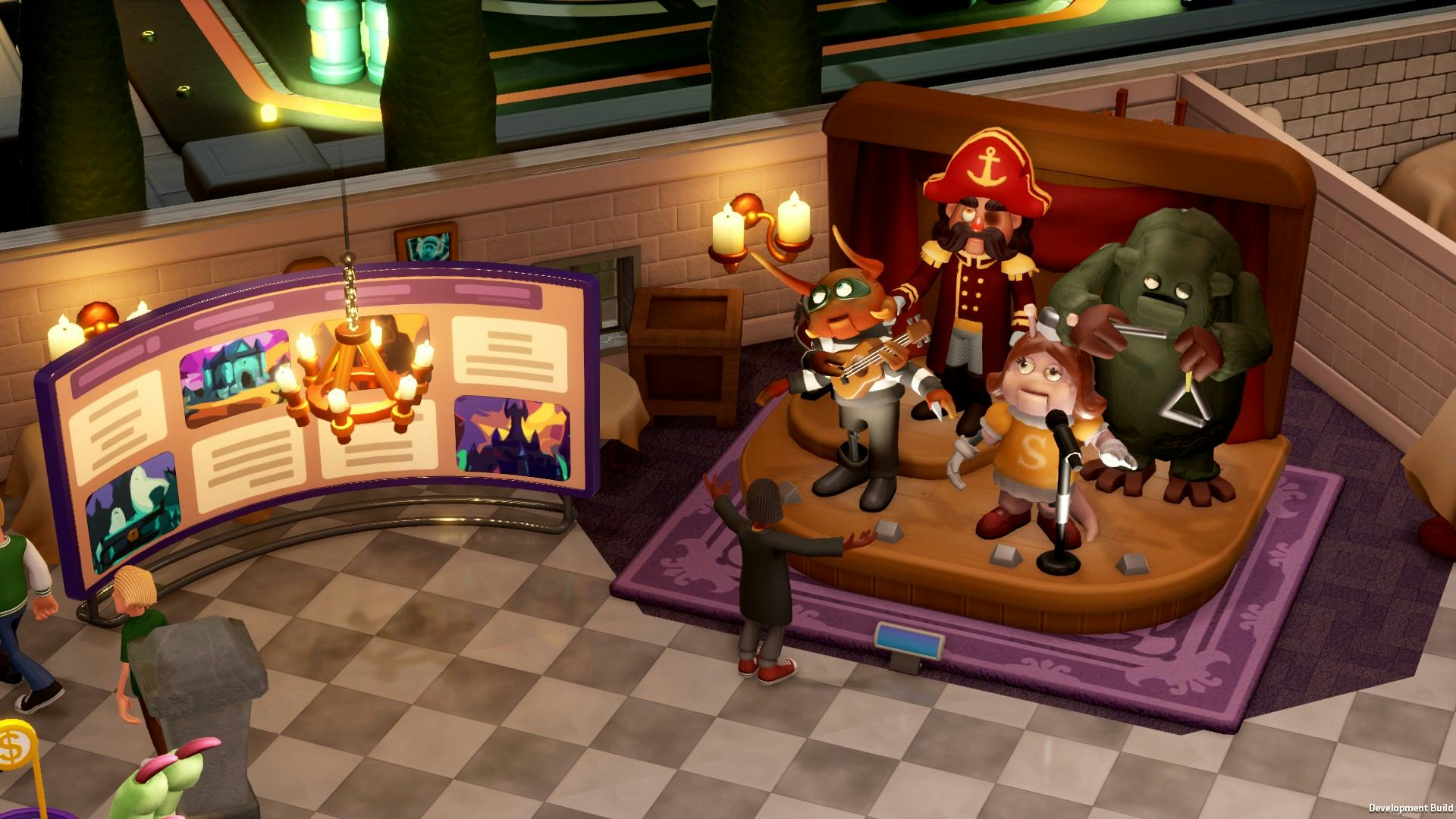
The best management games out there all revolve around ridiculous premises, from crafting your own gravity-defying theme park to building a city to survive a volcanic winter. My investment in the genre lies wholly in how ridiculous or outlandish my creations can get — and with that in mind, I’m now convinced Two Point Museum is bound to be my next unrelenting obsession. Two Point Museum is an astoundingly creative step up from the previous two games, and feels like it’s primed to be one of the most engrossing management sims ever created. In short, March can’t come soon enough.
We previously had a chance to preview Two Point Museum, but that snippet absolutely paled in comparison to the nearly ten hours I was able to play this time around. Now I got the chance to dig into the nitty-gritty of the game’s systems and experience the first three levels, each of which focused on a drastically different museum — Prehistoric, Marine Life, and Supernatural.

If you’ve played the previous Two Point games, or any management sim, you’ll know what to expect here. You place exhibits and design your museum, hire employees, adjust prices, provide amenities for guests, and generally make sure your income is more than what you’re spending. Just like in Two Point Campus, there’s a humorous glint to everything. This isn’t just your typical droll museum — exhibits include a caveman frozen in ice, who can unthaw and wreak havoc, and more.
What’s astounding about my time with Two Point Museum is how much of a step up it feels from the last two games. Two Point Hospital and Two Point Campus are both great games in their own right and while there may be some flaws, there’s nothing I’d really fix. That’s what leaves me so baffled about Two Point Museum — it improves the management experience in ways I hadn’t dreamed of, making each and every level feel like a completely distinct experience.
The previous Two Point games had different maps and levels to play through, but they all built on the core formula of building either a hospital or university. In Two Point Museum, however, there’s so much rich variety in crafting a museum that each level legitimately introduces unique mechanics and gameplay ideas that make them feel drastically different.

In the Marine Life museum you need to use expeditions to collect rare fish, then craft the right aquariums for those fish based on if they’re freshwater or salt water. Past that, you need to craft each aquarium to the liking of each fish, fine-tuning them with food and decorations, making sure you have experts to take care of them, and then maximizing your earning potential with displays and info stations. Outside of that, you, of course, can still place normal exhibits, build your gift shops and food stands, and all that normal management stuff. But the Marine Life exhibits instill a bit of Zoo Tycoon-like flair into the Two Point experience, integrally changing your approach to building a museum from the previous level — which focused entirely on static fossil exhibits.
The differences become even clearer with the Supernatural Museum, where you collect creepy exhibits to scare and delight customers. This includes an animatronic pirate band, a disembodied hand, a creepy doll in a rocking chair, and more. The exhibits alone give this museum a drastically different vibe, but there’s a brilliantly fun mechanic introduced in how you can capture and display ghosts.
Your expeditions in this museum will capture spirits that you can put on display, but you’ll need to design their rooms based on the era they're from and the decorations they like. Ghosts will eventually break out and scare your museum guests, but the better designed their rooms are, the longer they’ll stay content. You also need to consider which ghosts you put together, and if their personalities will clash. Once ghosts do break out your experts will need to vacuum them up and put them back. Again, these unique mechanics make you integrally change your approach to designing your museum — from its layout to the staff you hire and the amenities you install.

Each museum requires a different, thoughtful approach. But each one is a blast to play through. But there’s even more complexity layered into this experience, apart from wildly different museums. There are extra elements you’ll need to keep in mind — info stands you construct will get adults more invested, but children don’t care and instead require interactive exhibits to boost their satisfaction. Thieves and vandals can threaten your exhibit, making security jobs essential. Your staff can be cross-trained in various skills that make your expeditions more lucrative, or allow them to fill multiple roles at your museum. These extra little elements are sprinkled in across the experience to give you even more variety and control over how your museum grows and flourishes — and there’s enough complexity to keep any management fan satisfied for hours on end.
There’s already so much variety crammed into the three levels I played, and each one could have kept me going for another dozen hours. It’s been two weeks since I played Two Point Museum, and almost every day since I’ve been thinking about the ways I could have made my exhibits even better — and what kind of masterpieces I’ll be able to craft in the full version, as curator of the most bizarre museums the world has ever seen. Its hooks are already in deep.







